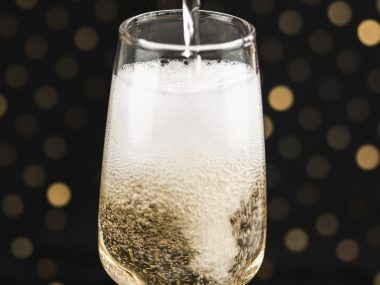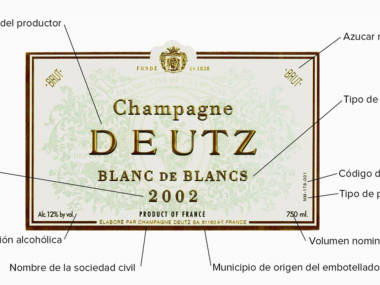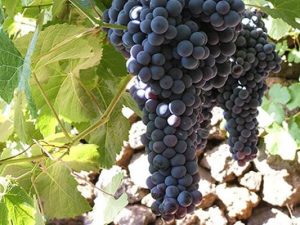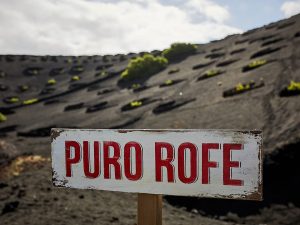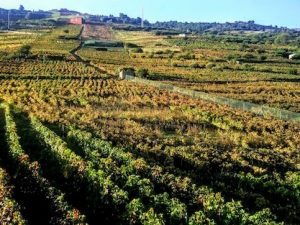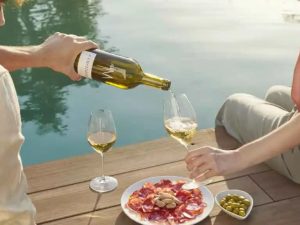A living monument to tradition and craftsmanship, Bodegas López de Heredia opens its doors to Gourmet Hunters, to reveal its high quality formula, with more than 143 years of experience. The López de Heredia family has been escaping fashions for more than four generations and defending the same traditional style, very careful and scrupulous in all the stages of production of their wines, which were designed by their great-grandfather in 1877. On this occasion, Germán Barreiro, from the bodega’s Sales Department, answers all our questions and invites us to reflect: “When something is well done, why change it?
What attributes define Bodegas López de Heredia?
At our winery, the love for making our wines has been passed down from generation to generation, always maintaining a traditional and natural style. Bodegas López de Heredia is also characterised by its strong personality, far removed from more or less passing fashions, which allows us to create a sign of identity with our most emblematic wine, Viña Tondonia. That love and conviction, instilled over so many years, means that today we can proudly say that we are a historic winery where passion for the vineyard, wine and respect for nature and craftsmanship has prevailed above all else.
Hence the philosophy behind it?
One of the most important pillars of López de Heredia’s philosophy is that it is a family winery with 143 years of history, in which the fourth generation continues to this day with the project started by their great-grandfather, Don Rafael López de Heredia, in 1877, to make a fine, classic, handcrafted and unique wine: Viña Tondonia. It is also a winery that, from its origins, has defended that a great wine begins by being made in the vineyard, taking special care to obtain high quality grapes, which can only be achieved by loving the countryside. That is why our wines are named in the same way as our vineyards. It is also worth noting the exceptional treatment we have always received from the workers of this House, which allows us to feel the winery as our own.
Throughout these 143 years of history, have your wines been subject to change?
We could say that our wines are practically the same as those produced in the early years, although we cannot guarantee this 100% as, ultimately, we depend on the grape, and this changes from one year to the next. We have documents that explain how we cultivated the vineyard and made wine at that time, as well as tasting notes that describe our wines in the same way as we do with today’s wines. This constancy is due to the fact that we have always been faithful to our way of making wine, harvesting by hand and transporting the grapes in poplar wood containers, fermenting in hundred-year-old oak vats, ageing our wines in repaired barrels, which come out of our own cooperage, racking by hand… In short, making our wines as in the past, although always attentive to the changes of this world that is evolving so quickly. When something is well done, why change it?
What are the elements that explain why your white wines are well made?
We have been making white wines from our own vineyards all our lives, so we have a wide knowledge and experience in the vinification of this style of wines, which have a lot of body and a vocation for ageing, which makes them so peculiar and unique. Moreover, nowadays, the vines have a certain age and they give us high quality grapes. Also, our production method is quite similar for both whites and reds: fermentation in contact with the skins and long aging in reused barrels, ranging from four years at Viña Gravonia to six years at Viña Tondonia Blanco Reserva. And, in exceptional years, we produce Grandes Reservas that are aged for ten years in barrels. To all this we must add the long periods of aging that our wines spend in the bottle before they are released on the market.
What is the secret in its elaboration process?
The whole process of making our wines is full of particular and unique factors. Harvesting is done by hand, in a very traditional way, in the same century-old ways, repaired and maintained in perfect condition, of course, as used by the great-grandfather. This allows us to bring the grapes to the winery in good health and without breaking them. The fermentation is still done in oak wood vats over 100 years old. Of great importance in the quality of the wines are the species of yeast that produce the fermentation, indigenous microorganisms that in Lopez de Heredia have been kept in the winemaking vats, so we do not have to resort to the use of external yeast. Our aging in Bordeaux American oak barrels remains patient, long. Racking is carried out by hand twice a year, so that the decanted impurities remain as little as possible with the clean wine. This is done with rigorous precision to avoid excessive emptying of the barrel, which always remains “sideways”, thus avoiding direct contact of the wine with the oxygen from the outside. Thus, with great patience, in a selective way, the natural elimination, never forced, of how much could harm the good aging is achieved, while preserving all the factors that contribute to favor it. Clarification is carried out with fresh egg whites and then the wines are bottled without any filtering. The cork stopper, long and very aged, is also fundamental in order to guarantee long periods of aging in the bottle, thus achieving the finesse that can be appreciated on the palate when tasting our wines.

What elements do the specific climatic and geographical features of the city of Haro contribute to your wines?
Our vineyards are located in the upper part of La Rioja, very close to our winery, protected from the cold winds coming from the north by the Sierra Cantabria mountains and very close to the river Ebro. For this reason, these lands benefit from a microclimate with an Atlantic influence. The average annual rainfall is 430 litres and, due to our altitude of approximately 500 metres and latitude, we have limited hours of sunshine, so the harvest is late, around the beginning of October and, as a tradition, around the day of the Virgen del Pilar, on 12 October. It is during the grape ripening period that, in our Rioja Alta area, the nights are cool and the thermal gap between day and night temperatures is very large, which favours the synthesis of acids and the fixation of polyphenols that allows us to produce wines with a vocation for ageing, both whites and reds. To all this, we must add the types of soil in our vineyards, poor, clay-limestone and alluvial, which allow the roots of the vines to deepen, thus resisting water stress in the years of drought. This combination of factors makes our wines have that elegant, fresh and balanced profile.
How would you describe this final result? What would you highlight as the most distinctive characteristics of your wines?
They are wines with an impressive freshness given the level of acidity they have. At the same time, that acidity, together with other components, allows the wine to be kept in the bottle in perfect condition for many years, as long as it has the ideal humidity and temperature conditions for conservation. On the other hand, and as our labels say, they are “Fine Wines”, aromatic, brightly coloured, clean and easy to drink. You start a bottle and, when you want to realize it, you have finished it! Finally, I would say that, despite their age, these wines stay young for many years and at the same time are very versatile to enjoy with any kind of food.
Earlier you explained how the López de Heredia bodega has managed to maintain its tradition over almost a century and a half, although never with its back turned to the advances of the world. How did the bodega adapt to the globalisation process? Did the export market become more important to you?
The founder, Don Rafael López de Heredia, was very clear from the beginning that he wanted his wines to be enjoyed everywhere, not only nationally but also internationally. That is why we have been selling in the five continents since 1900 and we continue to do so today. It is true that, due to globalization and social networks, our winery has had a lot of exposure in recent years, and the challenges have been to be able to continue dedicating quality time to all our customers and visitors to the winery, as well as to distribute our more limited wines in a proportionate manner so that they reach all the markets that demand them. Even so, we are also traditional when it comes to marketing and advertising, and we believe that the best advertising is word of mouth.
How has the relationship between the local and foreign markets changed?
The local market is still the most important for us from a sales point of view, and the degree of sophistication it has acquired in recent years has made the appreciation for our winery and wines grow. However, it is also true that, in export markets, the perception of quality and exclusivity of our wines is even higher than in Spain, which has favoured a high demand for them and that export sales even exceed those of the domestic market.
What can we expect from López de Heredia wineries in the future?
The López de Heredia family will remain faithful to its philosophy, respecting tradition, and instilling its values and love for the world of wine in future generations so that all our wine lovers can continue to enjoy Viña Tondonia for many years to come.

